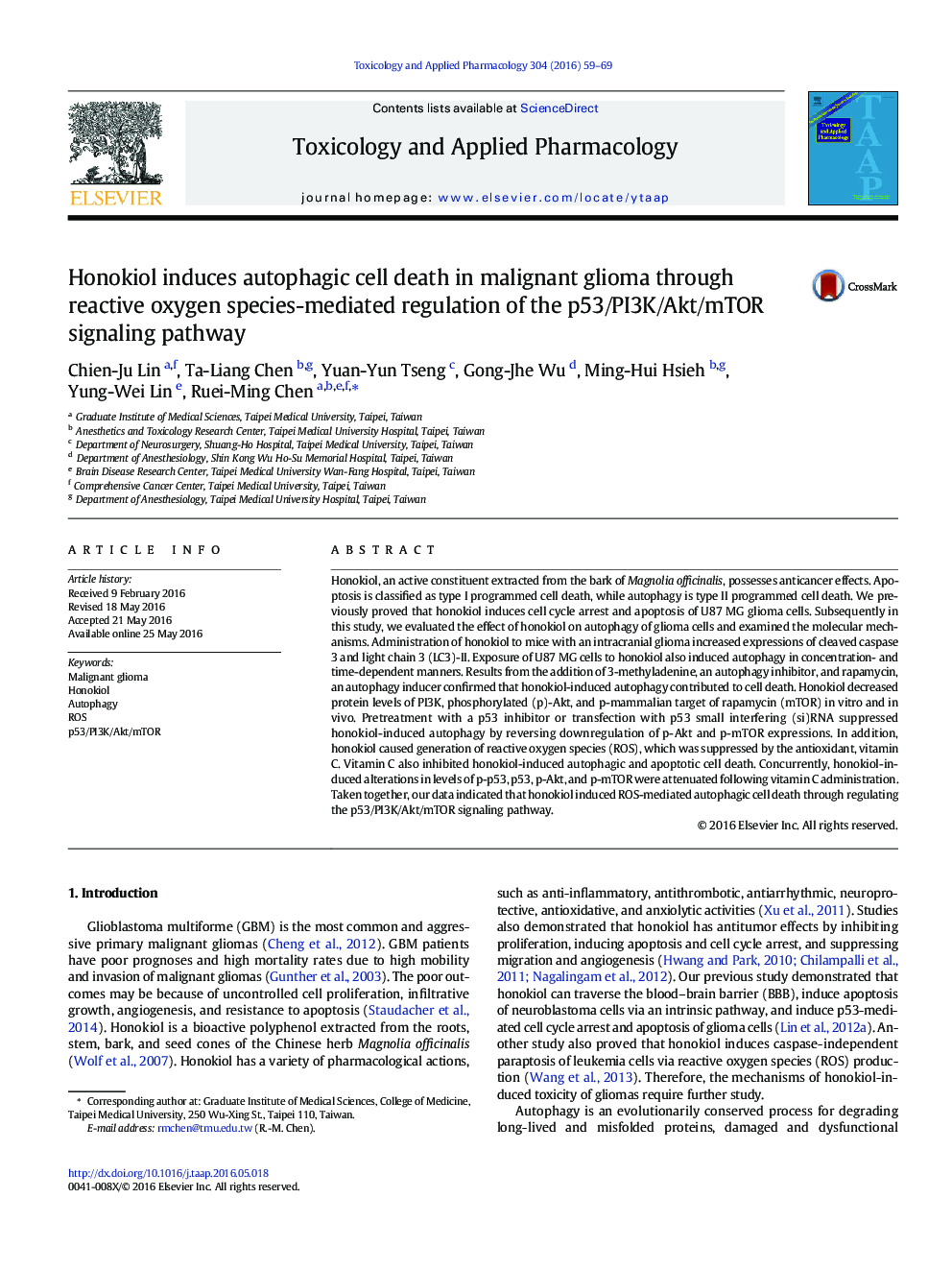| کد مقاله | کد نشریه | سال انتشار | مقاله انگلیسی | نسخه تمام متن |
|---|---|---|---|---|
| 2568025 | 1561158 | 2016 | 11 صفحه PDF | دانلود رایگان |

• Exposure of mice with intracranial gliomas to honokiol induces cell apoptosis and autophagy.
• Honokiol triggers autophagy of human glioma cells via the PISK/AKT/mTOR signaling pathway.
• P53 induces autophagy via regulating the AKT/mTOR pathway in honokiol-treated glioma cells.
• ROS participates in honokiol-induced cell death through the p53-mediated signaling pathway.
• Honokiol induces ROS-mediated autophagic cell death via the p53/PI3K/Akt/mTOR mechanism.
Honokiol, an active constituent extracted from the bark of Magnolia officinalis, possesses anticancer effects. Apoptosis is classified as type I programmed cell death, while autophagy is type II programmed cell death. We previously proved that honokiol induces cell cycle arrest and apoptosis of U87 MG glioma cells. Subsequently in this study, we evaluated the effect of honokiol on autophagy of glioma cells and examined the molecular mechanisms. Administration of honokiol to mice with an intracranial glioma increased expressions of cleaved caspase 3 and light chain 3 (LC3)-II. Exposure of U87 MG cells to honokiol also induced autophagy in concentration- and time-dependent manners. Results from the addition of 3-methyladenine, an autophagy inhibitor, and rapamycin, an autophagy inducer confirmed that honokiol-induced autophagy contributed to cell death. Honokiol decreased protein levels of PI3K, phosphorylated (p)-Akt, and p-mammalian target of rapamycin (mTOR) in vitro and in vivo. Pretreatment with a p53 inhibitor or transfection with p53 small interfering (si)RNA suppressed honokiol-induced autophagy by reversing downregulation of p-Akt and p-mTOR expressions. In addition, honokiol caused generation of reactive oxygen species (ROS), which was suppressed by the antioxidant, vitamin C. Vitamin C also inhibited honokiol-induced autophagic and apoptotic cell death. Concurrently, honokiol-induced alterations in levels of p-p53, p53, p-Akt, and p-mTOR were attenuated following vitamin C administration. Taken together, our data indicated that honokiol induced ROS-mediated autophagic cell death through regulating the p53/PI3K/Akt/mTOR signaling pathway.
Figure optionsDownload high-quality image (83 K)Download as PowerPoint slide
Journal: Toxicology and Applied Pharmacology - Volume 304, 1 August 2016, Pages 59–69